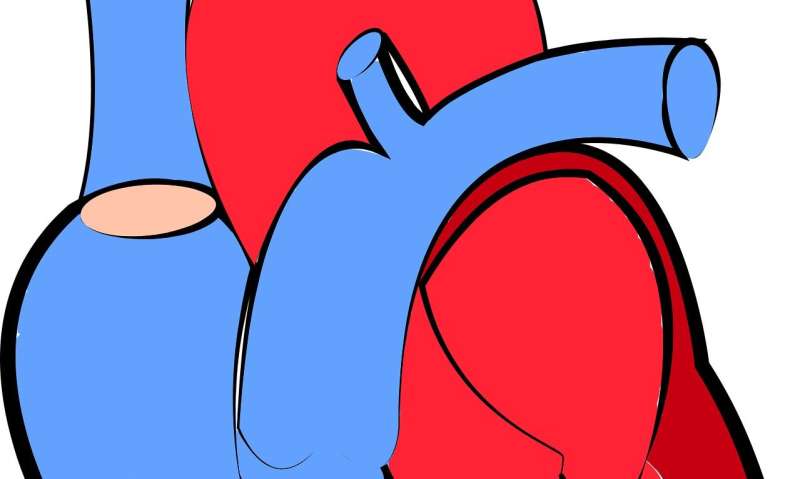Donor hearts at increased disease risk offer better survival rates for transplant recipients

Accepting an organ that has an increased risk of potentially transmitting disease offers a higher one-year survival rate for candidates on the heart transplant list over waiting for an organ with less risk, according to a study published today in the Journal of the American College of Cardiology. Increased risk donors make up a growing number in the donor pool for organs, offering a potential strategy to reduce waitlist mortality for patients awaiting transplant. For many of these patients, the benefit of proceeding with transplantation sooner outweighs the low risk of disease transmission associated with these donors.
Increased risk donors are defined as organ donors who carry an increased risk for inadvertent disease transmission to the transplant recipient, including HIV, Hepatitis B Virus and Hepatitis C Virus. In 2015, increased risk donors represented 19.5 percent of the donor pool.
"For patients with end-stage heart failure, heart transplantation is not only the gold-standard of care but an increasingly-utilized therapy by clinicians treating these patients," said Michael S. Mulvihill, MD, a surgical research fellow in the division of cardiovascular and thoracic surgery at Duke University. "Through this study we discovered that acceptance of an increased risk donor heart offer has a significant survival benefit that should be part of the shared decision-making process for clinicians and patients."
Researchers performed a retrospective registry analysis to examine the impact of declining an increased risk donor heart for heart transplant candidates compared to candidates who accepted the offer. Using United Network of Organ Sharing data, a total of 2,602 increased risk donor hearts were offered to 10,851 heart transplant candidates from 2007 to 2017. To measure competing outcomes, researchers followed candidates who declined an increased donor risk heart until eventual heart transplant (increased donor risk or non-increased donor risk), death or decompensation precluding heart transplant, or ongoing time on the transplant waitlist. These candidates were compared with candidates who accepted an increased risk donor heart to determine the survival benefit associated with acceptance of the increased risk donor organ.
"It's important to understand that patients who turn down an increased risk donor heart don't immediately get offered another, non-increased risk donor heart," Mulvihill said. "These patients are returned to the waitlist for an uncertain amount of time. We wanted to measure the risks of competing outcomes for these patients compared to patients who accepted the increased risk donor heart."
Of the patients who declined the initial increased risk donor offer, 58 percent underwent a non-increased risk donor heart transplant, 12.4 percent underwent a later increased risk donor heart transplant, 7.9 percent were removed from the waitlist due to death or decompensation, and 21.1 percent were still waiting for a heart transplant one year after the initial offer. Patients who accepted the initial increased risk donor offer had 92.1 percent survival rates after one year compared to 83.1 percent for those who declined. Researchers found this benefit persisted five years post-offer.
"Increased risk donor organs offer an opportunity to decrease waitlist mortality for patients awaiting heart transplant," Mulvihill said. "It's worth making sure candidates, clinicians and listing centers discuss the risks and benefits of increased risk donor offers for these patients."
Limitations include the potential for unmeasured confounders, especially with respect to uncertainty in the reasons for the organ offer decline. Researchers were also unable to assess the rate of disease transmission after transplantation based on available data.
More information: Journal of the American College of Cardiology (2018). DOI: 10.1016/j.jacc.2018.07.097


















